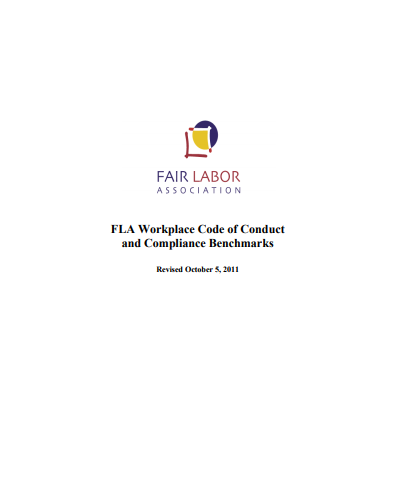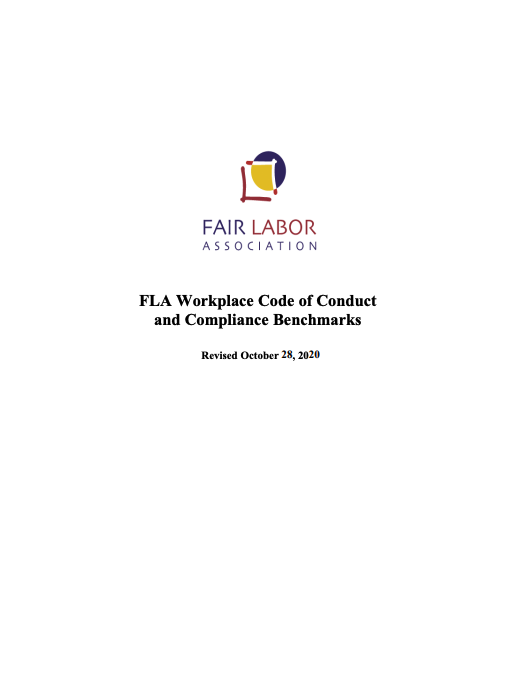PREAMBLE
The FLA Workplace Code of Conduct defines labour standards that aim to achieve decent and humane working conditions. The Code’s standards are based on International Labour Organization standards and internationally accepted good labour practices.
Companies affiliated with the FLA are expected to comply with all relevant and applicable laws and regulations of the country in which workers are employed and to implement the Workplace Code in their applicable facilities. When differences or conflicts in standards arise, affiliated companies are expected to apply the highest standard.
The FLA monitors compliance with the Workplace Code by carefully examining adherence to the Compliance Benchmarks and the Principles of Monitoring. The Compliance Benchmarks identify specific requirements for meeting each Code standard, while the Principles of Monitoring guide the assessment of compliance. The FLA expects affiliated companies to make improvements when Code standards are not met and to develop sustainable mechanisms to ensure ongoing compliance.
The FLA provides a model of cooperation, accountability, and transparency and serves as a catalyst for positive change in workplace conditions. As an organization that promotes continuous improvement, the FLA strives to be a global leader in establishing best practices for respectful and ethical treatment of workers, and in promoting sustainable conditions through which workers earn fair wages in safe and healthy workplaces.


